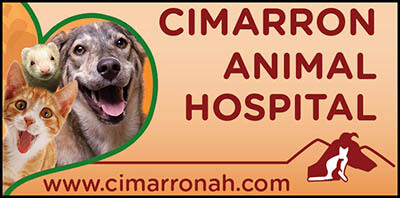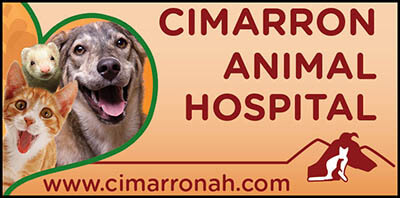Safer Surgery At Cimarron
Safest Anesthetic Procedures Available in Small Animal Practice!
The risks of anesthesia at Cimarron Animal Hospital are minimal because of our pre-surgical precautions, our intensive anesthetic monitoring, and comprehensive care. We are committed to safer surgery than you’ll find elsewhere!
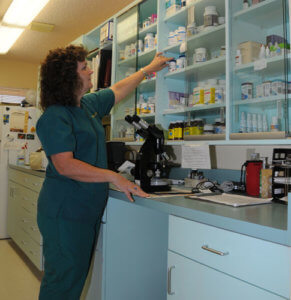
Pre-Surgical Blood Testing
Every surgical patient at Cimarron has pre-anesthetic blood testing done to ensure that liver and kidneys can metabolize the many medications given during surgery. Pre-anesthetic blood testing is not required at many clinics, and may not even be recommended!
Pre-Surgical Examination
Every animal receives a Complete Physical Examination by a veterinarian before any sedatives are administered. At many veterinary clinics, patients may receive tranquilizers or anesthetics before a veterinarian even sees them.
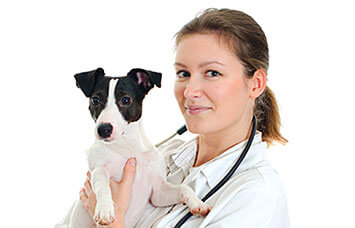
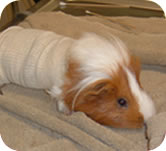
IV Catheter and Fluids
All patients get an IV catheter and fluids during anesthesia at Cimarron Animal Hospital. Patients under anesthesia develop low blood pressure. IV fluids protect against organ damage due to hypotension. An IV catheter also gives us immediate IV access for medications should any be needed quickly.
Sevoflurane
Sevoflurane gas is one of the safest gas anesthetics available in human and veterinary medicine today. Not all hospitals invest in the extra safety of Sevoflurane. Instead, they may be using less expensive, more risky anesthetics. Our staff wants the best for their own pets, so our patients get no less!
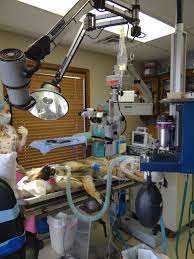
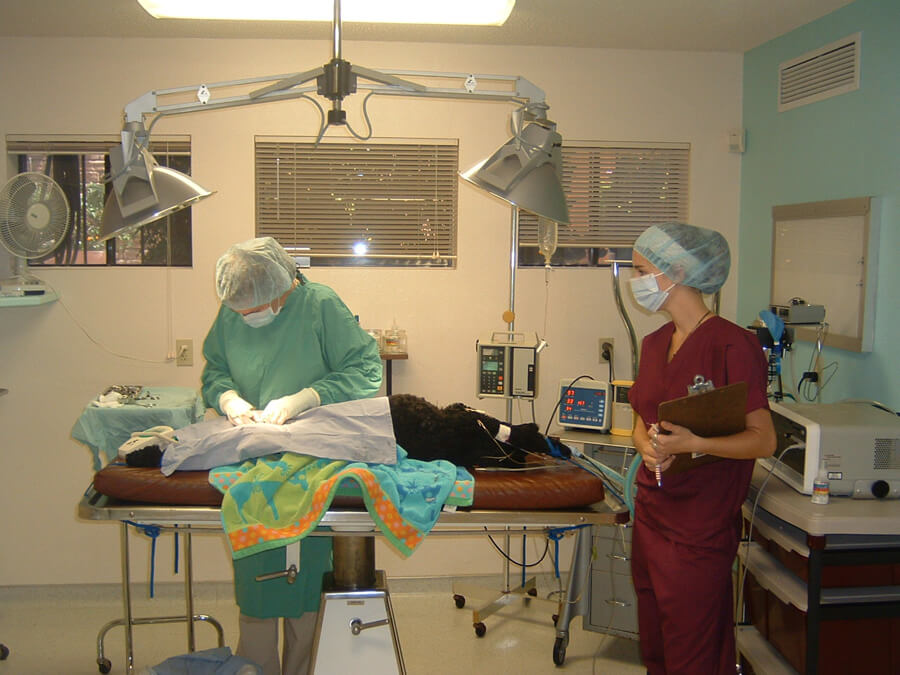
Anesthetic Monitoring
You can be assured that there will be a dedicated anesthetist technician overseeing your pet’s anesthesia, doing nothing but monitoring your pet! (Many clinics still have the monitoring technician doing other things too, like performing the dental cleaning or prepping the next patient for surgery–in another room!) In addition to this one-on-one supervision, our patients are monitored with a number of electronic devices used in human surgeries, such as a Pulse Oximeter, Blood Pressure Monitor, EKG, Core Temperature, and Respiratory Monitor. We know immediately if any parameters change so we can respond before a crisis occurs! Your pet will stay as safe as possible.
Comprehensive Pain Management
Comprehensive pain management means that all of our surgery patients receive pain medication PRIOR to, DURING, and AFTER anesthesia. Treating pain prior to surgical trauma manages the pain before it has a chance to really start hurting. Most of our patients also go home with pain medication as well. “Discount “ or “Reduced cost” surgery patients often receive only the most minimal pain control.
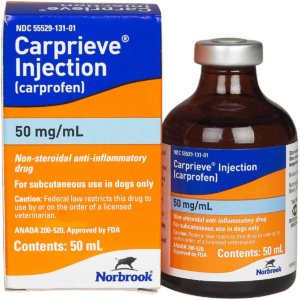
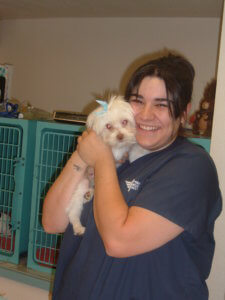
Nursing Care Throughout Recovery
The postoperative period is the most critical to a smooth recovery. Our surgical nurses are continuously monitoring patients’ body temperature, vitals, and pain scores throughout recovery. Oftentimes, this is when pets need the most love.
Before You Choose a “Discount“ Option, Ask These Questions:
- Do you offer pre-surgical blood testing? Is that included in the “discount” price?
- Does your Veterinarian examine my pet prior to any medications being given?
- What anesthetics are used? Will my pet be maintained on Sevoflurane?
- What equipment is used to monitor my pet during anesthesia?
- Will a Certified Veterinary Technician monitor my pet’s anesthesia?
- How many pets does your surgery Assistant monitor at one time?
- Is pain medication given before surgery and during surgery? Is pain medication sent home?
